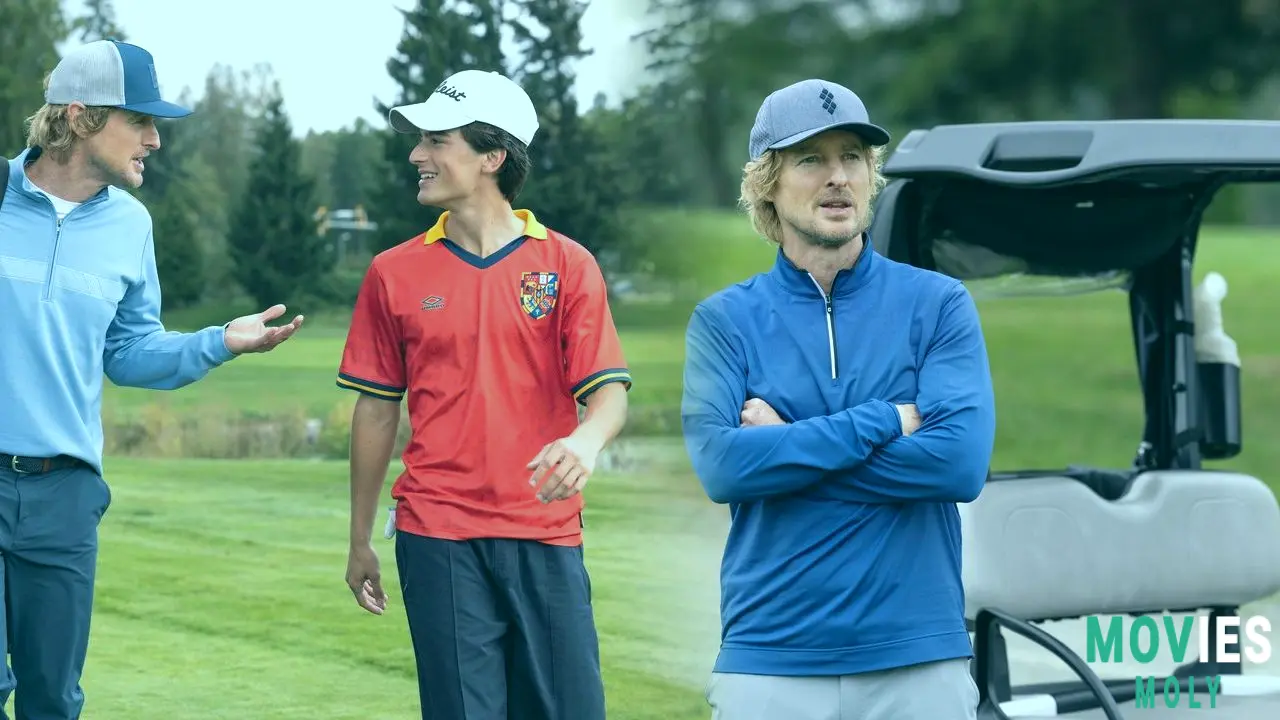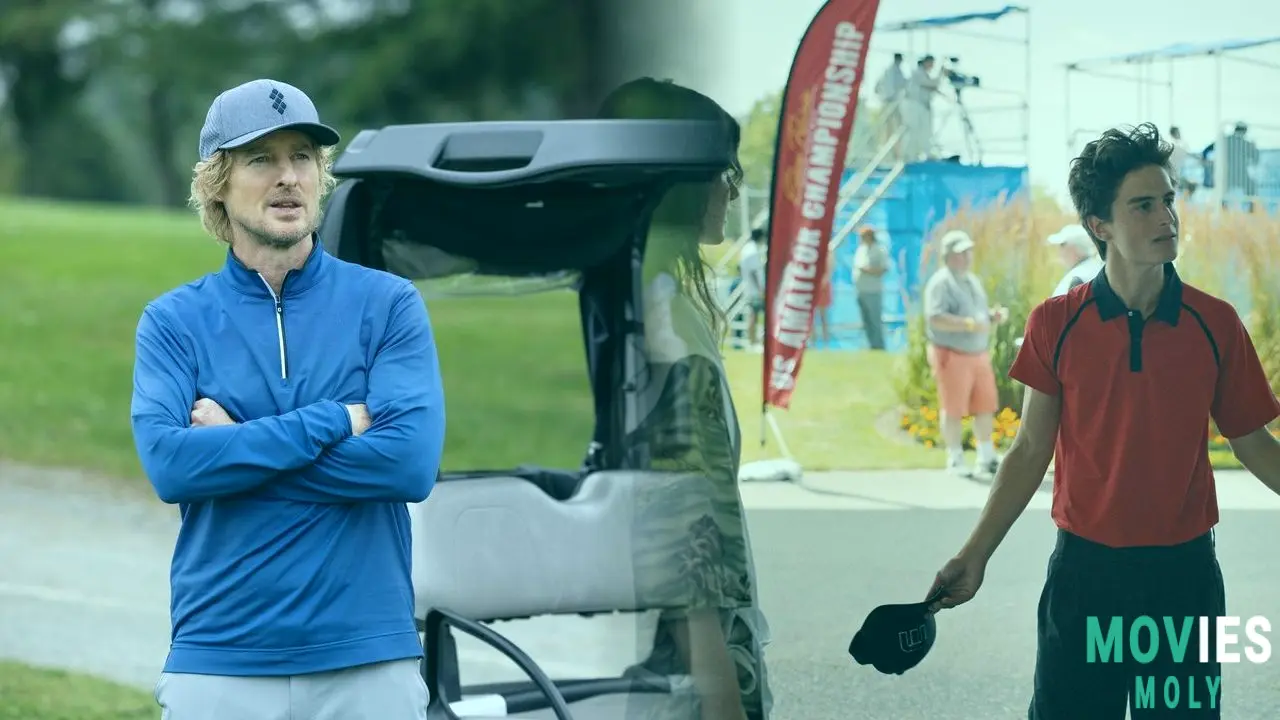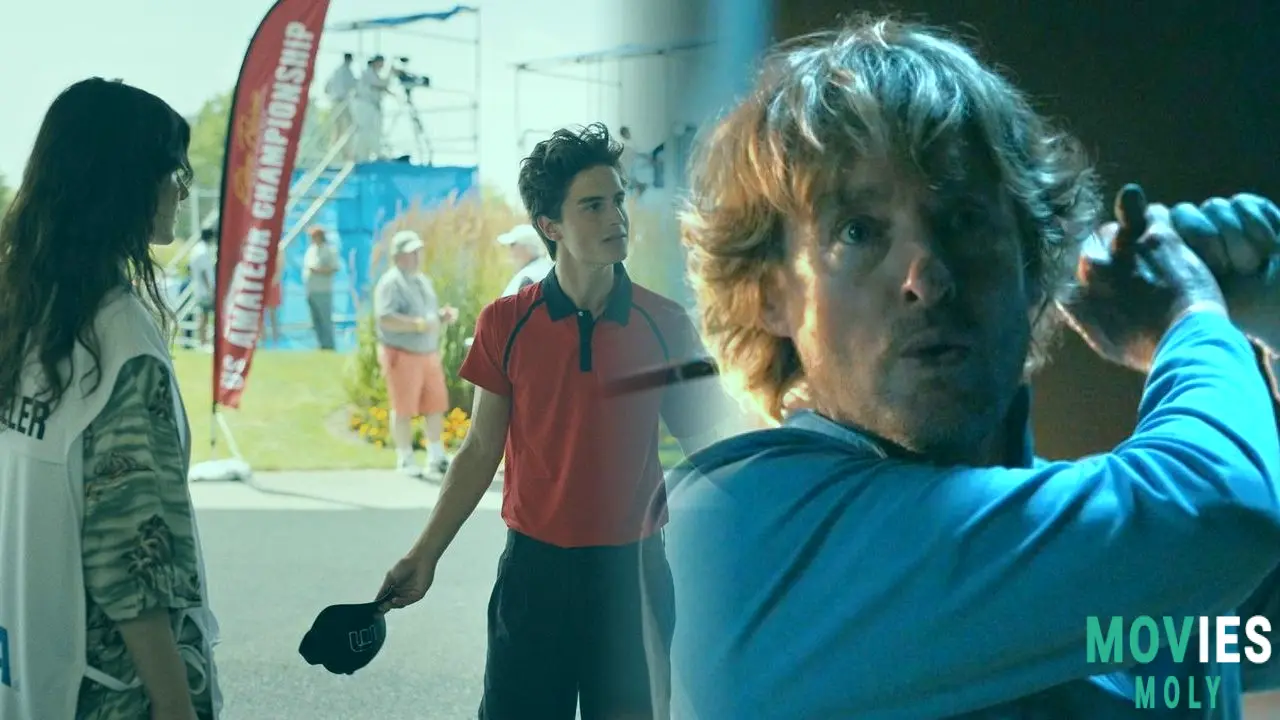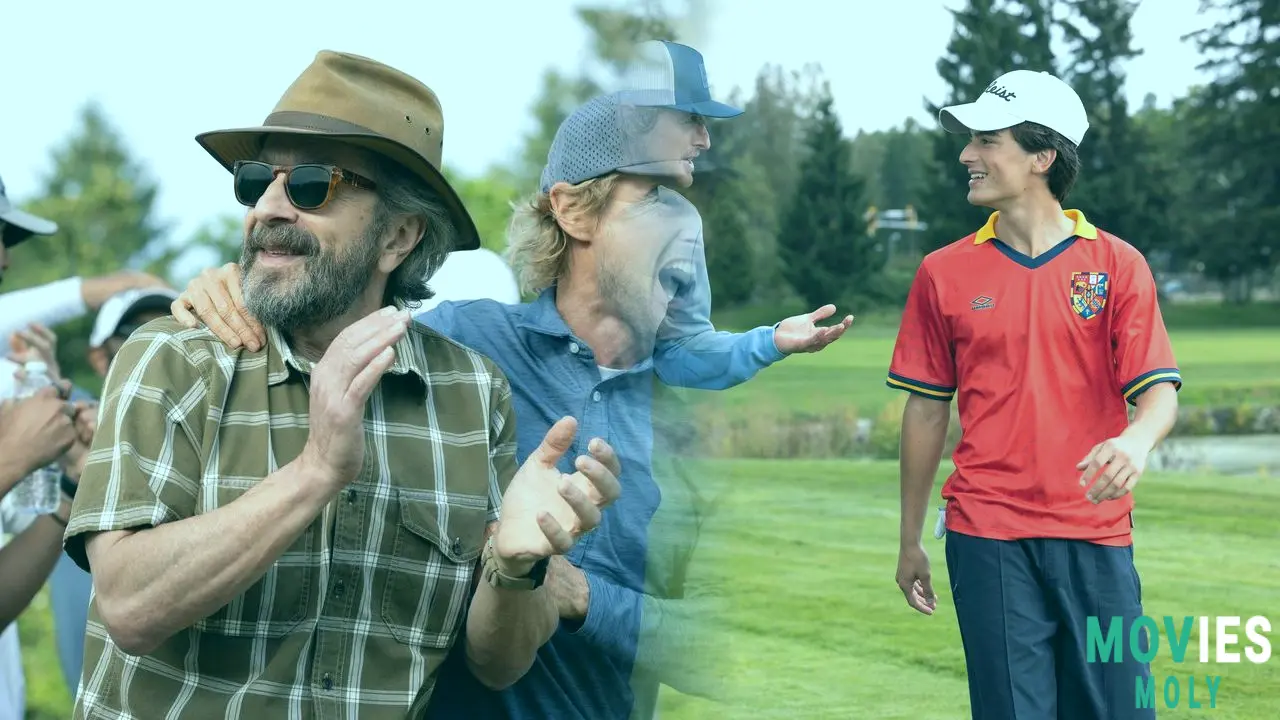Stick, Apple's new sports comedy, came with the promise of being the next feel-good show, maybe even a spiritual successor to the popular Ted Lasso. The show stars Owen Wilson as Pryce Cahill, a former pro golfer who is down on his luck. He tries to help young golf prodigy Santiago "Santi" Wheeler (Peter Dager) become a better player. The show definitely has some heart and tries to tell an underdog story, but I was constantly distracted by its problems with pacing, the fact that the supporting cast is sometimes unlikable, and the fact that it gets golf facts wrong. This show tries to make you feel better, but it often misses the goal, and I wish it would be more consistent and very interesting.
The idea of a washed-up mentor giving a chance to raw talent is a classic for a reason. Stick tries to build on this by adding themes of finding family and personal salvation. The show often doesn't live up to its potential, though, like a golf swing that looks excellent on video but misses the mark. It's hard to argue that Owen Wilson brings his own charm to the character, but even he can't make up for the show's uneven tone and story choices that occasionally feel more like a forced lesson than natural storytelling.
The best part of the show is Owen Wilson's emotional portrayal of a father who is grieving.The series is based on Pryce Cahill's journey through loss and being a father.
There's little doubt that Owen Wilson's role as Pryce Cahill is the best part of Stick. The program is supposed to be funny, but Wilson is at his best in the quieter, more emotional parts. We find out that Pryce is having a hard time dealing with the death of his little son, Jett. This tragedy has certainly changed his life and left a big hole in it. Wilson expresses this sadness in a way that is quite heartbreaking, which makes Pryce's desire to help Santi feel less like a comeback and more like a desperate wish to be a parent again. I hope the program would have more emotional depth like this.
Some of the most moving scenes in the series are when Pryce thinks about his dead son or talks to other kids. It's at these moments that Stick really connects with Pryce, giving him a powerful redemption arc that goes beyond the golf story. You can tell that he is vulnerable and wants to be a dad, which makes you want to cheer for him, even when the other narrative lines don't seem as well developed. It's a testimony to Wilson's performance that he can transcend material that often feels formulaic or underdeveloped, making Pryce's personal journey the most compelling reason to keep watching.
Stick has a hard time getting its jokes across and staying away from predictable plots.

The series often misses the mark when it comes to being funny and having good character chemistry.
Stick was a "sports comedy," but I often wondered where the funny was. There are some attempts at humor, but a lot of the jokes seem forced or don't work. The relationship between Pryce and his grumpy former caddie Mitts (Marc Maron) is funny at times, but not as funny as Ted Lasso, which is a program that makes you laugh out loud. Instead, the show often goes too far into sentimental terrain or uses "life lessons" that are a little too on-the-nose, like a sweeter family sitcom.
There is also a lack of romantic spark between Santi and Zero (Lilli Kay), who could be his love interest. Their conversations sometimes seem forced and not believable, even though they are supposed to be having first experiences. It's hard to invest in their relationship since they don't really connect, which is a big part of Santi's personal journey. It's clear that Stick wants to make things comfortable and easy to watch, but in doing so, it often gives up the sharp writing and interesting character relationships that make a comedy genuinely memorable.
Stick made a big mistake with the Zero character.

A lot of people don't like Zero's introduction and portrayal.
The character of Zero, performed by Lilli Kay, is one of the most talked-about and controversial parts of Stick. In episode three, Zero is introduced as Santi's caddy in episode four. Zero is described as a "genderqueer anticapitalist post-colonial feminist." The show definitely wants to give a current, outspoken voice, yet the way Zero is portrayed often makes him seem like a cartoon figure instead than a real person. It's even more interesting to think about why the creators chose to make such a divisive character the main character.
There were times when I found Zero's personality annoying, and it's evident from how the audience reacted that a lot of people felt the same way. Zero's statements don't help people understand each other or have real conversations; instead, they seem preachy and one-dimensional, like they are just there to make Pryce and Mitts' "old-white-man confusion" look bad. This method turns off a lot of people who see the character as a "anti-woke" villain instead of a complicated human. It's a squandered chance to make a character that people can really relate with. Instead, the portrayal seems more like it was meant to start a fight than to connect with people.
Stick's story is hurt by golf realism mistakes.

Golf fans can't help but notice how wrong the show is about the green.
Stick typically has trouble with how realistic golf appears, which may be a big problem for those who know the game. I understand that artistic license can be used to make things more dramatic, but some of the golf scenes are hard to believe. For instance, Santi's ability to hit a 200-yard, then a 250-yard, and finally a 320-yard target with bad clubs and range balls, all with perfect precision, seems more like a fantasy than a prodigy. It's impossible to picture any real-life situation where these kinds of things would happen so easily.
Also, things like Santi taking a long tantrum break in the middle of a round, which would definitely get him disqualified in a real event, or his walk-off throwing wedge from 100 yards away on what looks like a par 3, pull me out of the story. Stick tries to get the details right with good-looking swings (thanks to Peter Dager and Owen Wilson's instruction), but these big mistakes make the show less believable. It's a little thing, but for people who care about the sport, it can't be overlooked, which makes the presentation seem less real than it wants to be.
In the end, Stick has some truly moving moments, mostly because Owen Wilson does such a good job of showing Pryce's sadness and desire to be a father. The show's attempts at humor don't always work, and its supporting characters, especially Zero, have a hard time connecting with the audience. They sometimes seem more like caricatures than genuine people. Fans of the sport may find it unsettling since the game itself, while visually pleasing in terms of swings, often sacrifices realism for dramatic effect. Stick tries to be a reassuring story about an underdog, but it sometimes feels too safe and familiar, which means it doesn't reach its full potential.
Every Wednesday, Apple TV+ shows new episodes of Stick.




